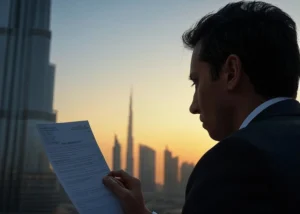The United Arab Emirates (UAE) is renowned for its strict regulatory framework regarding the importation, possession, and use of drugs and controlled substances. Recent changes in drug regulations specifically targeting non-resident foreigners highlight the UAE’s commitment to ensuring public health and safety while accommodating the unique needs of international visitors. This article explores the updated drug regulations, their implications for non-resident foreigners, and the steps required to remain compliant while traveling to the UAE.
Overview of the New Regulations
The UAE’s updated drug regulations aim to strike a balance between upholding strict anti-drug laws and addressing the medical needs of foreign visitors. Key aspects of the new regulations include:
- Permissibility of Certain Medications:
- Non-resident foreigners are now allowed to bring specified quantities of prescription medications into the UAE for personal use.
- Medications must be approved by the UAE Ministry of Health and Prevention (MOHAP).
- Electronic Approval System:
- Travelers must obtain prior electronic approval from MOHAP to import controlled medications.
- The approval process involves submitting medical prescriptions and relevant documentation through an online portal.
- Quantity Restrictions:
- Non-residents can bring up to a three-month supply of prescribed medication for personal use.
- Controlled and psychotropic drugs are subject to stricter limits and require additional documentation.
- Prohibition of Certain Substances:
- Substances banned in the UAE, such as some narcotics and psychotropics, cannot be imported under any circumstances.
- Increased Awareness and Guidance:
- The UAE authorities have launched awareness campaigns to educate travelers about permissible drugs and the process for obtaining approvals.
Steps for Non-Resident Foreigners
To ensure compliance with the new drug regulations, non-resident foreigners must follow these steps:
- Research Permissible Medications
- Consult the official list of approved medications on MOHAP’s website to verify if your prescribed drug is allowed.
- Obtain Electronic Approval
- Submit an online application through MOHAP’s electronic system.
- Upload a copy of your prescription, medical report, and passport.
- Carry Required Documentation
- Keep the following documents on hand when traveling:
- Original prescription from a licensed medical practitioner.
- MOHAP’s electronic approval certificate.
- Valid identification documents.
- Adhere to Quantity Limits
- Ensure that the medication you carry does not exceed the approved quantity.
- Declare Medications Upon Arrival
- Declare all medications at customs checkpoints to avoid potential legal issues.
Implications of Non-Compliance
Non-compliance with the UAE’s drug regulations can result in severe consequences, including:
- Confiscation of prohibited medications.
- Fines, imprisonment, or deportation for possession of banned substances.
- Denial of entry into the UAE for future visits.
Balancing Public Safety and Medical Needs
The new regulations reflect the UAE’s efforts to address the medical requirements of international travelers while maintaining stringent controls to safeguard public health. By streamlining the approval process and increasing transparency, the UAE ensures that travelers with legitimate medical needs can access their prescribed medications without violating the law.
Conclusion
The UAE’s updated drug regulations for non-resident foreigners represent a significant step forward in accommodating global travelers’ healthcare needs. However, it is crucial for visitors to familiarize themselves with the rules and comply fully to avoid legal complications. By taking proactive measures and adhering to the outlined steps, non-resident foreigners can ensure a hassle-free travel experience while enjoying the UAE’s world-class offerings.






